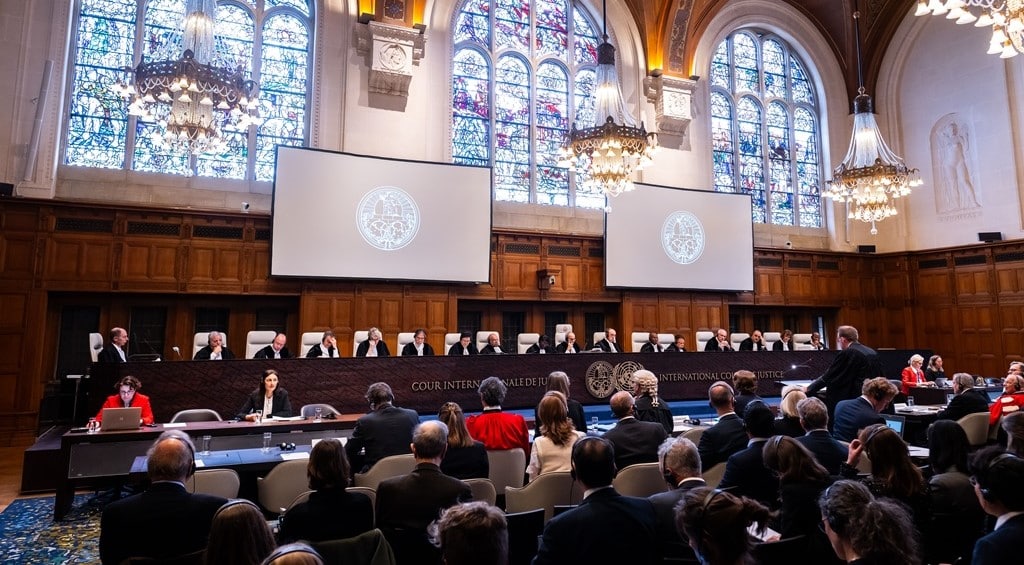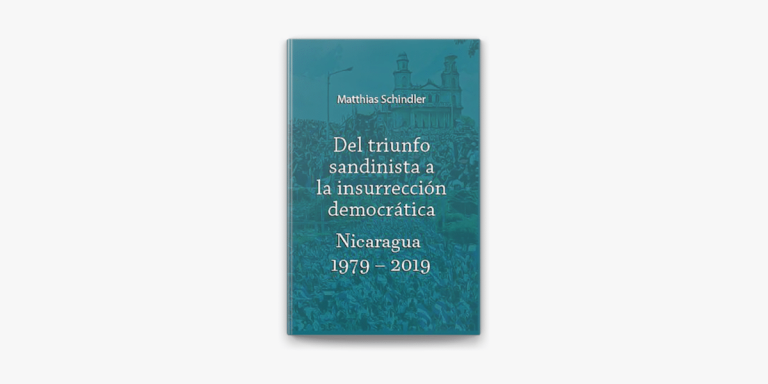10 de marzo 2022

ICJ Rules Against Nicaragua's Request For Germany to Halt Arms Sales to Israel

PUBLICIDAD 1M
PUBLICIDAD 4D
PUBLICIDAD 5D
Those heartfelt words are the title of a new work written by Matthias Schindler, a German citizen who spent 38 years working in Nicaragua

That affectionate exclamation – Goodbye little Nicaragua! – could be an friendly remark meant to coax a smile from a passing Nicaraguan exile. Or, it could represent the painful farewell of someone leaving their country for exile; perhaps voluntarily, or perhaps forced out by the authorities due to their political activities and criticism. Such has been the experience of tens of thousands of women and men obliged to leave their land to escape imprisonment.
In this case though, those two words are the title of a memoir written by Matthias Schindler, a German citizen whose long years of solidarity work for Nicaragua dated from the years of the fight against the Somoza dictatorship and the July 19, 1979 triumph. By 1983, Schindler’s native city of Hamburg had gotten too small to hold his love and solidarity with the Nicaraguan people. He left Germany to experience firsthand the reality of the country’s revolution.
Now, over 40 years later, “Adios Nicaragüita” is Matthias’ definitive farewell. “I won’t go back to Nicaragua while the Ortega-Murillo regime remains in power,” he declares.
Schindler “stepped onto Nicaraguan soil for the first time in my life” on September 21, 1983. He arrived as part of Germany’s first international work brigade, based in the city of Leon, which became a sister city to Hamburg. For many years, this work brigade organized the construction of projects to benefit Leon’s population. Schindler recalls with satisfaction how they were received that first day by poet Ernesto Cardenal, a figure well-known and beloved in Germany.
Matthias Schindler remained part of Leon for 38 years, leaving and returning with the same voluntary solidarity displayed by so many in West Germany. He said goodbye to his Nicaraguan friends many times, but his definitive farewell, for the reasons stated above, came on November 21, 2021 – after 38 years of work in our country.
During this time, Schindler supported the efforts of the Nicaraguan people to chart a democratic course for their lives. He identified with their yearnings and remained committed to them. However, as Matthias confirms with sadness: “the internationalists that at one time came to the country to help construct a society of self-determination are today harassed and boycotted by the government.” He makes these comments in reference to one of four “catch-all” laws passed in 2020 that condemns as “foreign agents” those who receive funds from international solidarity to help assuage the country’s social needs.
Matthias was all too aware of the process of institutional decay that the Ortega forces led, culminating in the current dictatorship. “During that time, especially in Leon, I became deeply submerged in Nicaraguan society, and saw the Sandinista Revolution from within. Despite the popular sympathy and widespread support it enjoyed, it was clear that the Sandinista movement lacked internal democracy.”
Matthias documented all this and much more in his book, From Sandinista triumph to democratic uprising: Nicaragua 1979-2019, published in German and Spanish. I had the honor of writing the prologue to that edition. Published just one year after the events of April 2018, the book brings together details of the repression and massacres based on the first-hand information that circled the globe in those days.
In his new work of farewell to our country, Matthias offers extensive information about the new Nicaraguan reality. In his view, the problems began in 2006 when Daniel Ortega agreed to prohibit all forms of abortion, even when the woman’s life was in danger, in order to win the support of the Catholic and Protestant churches and the right-wing political parties.
In his last visit to Nicaragua in 2021, Matthias says that upon arrival he could observe the fear that reigned: “fear in the streets, in the restaurant, in the bus, in the taxi – fear of the neighbors, the higher-ups, the police controls on the highways.”
He also recalls the complex relation that existed between religion and the Sandinistas after Ortega pledged to end even therapeutic abortions. That relationship has now deteriorated into persecution. “Bishops and priests have been physically assaulted and submitted to a hate campaign that has forced some of them to leave the country.”
Matthias has similar words of condemnation for the situation of the “intellectuals who offered the Sandinista Revolution a touch of freshness and joy. Now, they too are persecuted, accused of betraying the homeland.” Among them, he makes particular reference to Gioconda Belli and Sergio Ramirez.
This new work was released electronically, but could become Mathias’ next published book. It offers and abundance of current information on the new reality in Nicaragua, and how completely it contrasts with the reality that he encountered so many years ago.
Schindler speaks affectionately of the people who were important to him during his years in the country, including then-mayor of Leon, Luis Felipe Perez; and the now-deceased Rigoberto Sampson, Leon’s last Sandinista mayor before the destructive Ortega forces took over the party. He expresses respect and admiration for Vilma Nuñez’ tireless defense of human rights in the face of an arbitrary power.
Despite the political differences that now distance him from some of the people he worked with in Leon, Matthias recalls them with great respect and sincere friendship. He maintained a running argument with some of them about the Ortega-Murillo dictatorship. When these friends defended the regime for “their works of progress”, Matthias notes his response:
“The highways under Hitler or the Soviet Union’s industrial progress under Stalin aren’t acceptable justifications for their reigns of terror. I asked them questions such as: ‘What good are hospitals, highways or paved streets for the thousands of Nicaraguans who are forced to flee the country?’”
“Above all – and this is crucial,” writes Matthias, “asphalt roads or new hospitals aren’t an argument when we’re talking about freedom and democracy.”
Before taking this last trip, Matthias thought that the book he’d written might cause him problems, and he wasn’t mistaken: “They now treat me as a trafficker or an imperialist spy!” he exclaimed in his essay. “It’s true that, unlike many others, in the end I was able to enter Nicaragua… But it’s hard to accustom oneself to the idea of having to put up with such humiliating treatment once more.”
The above reason was what led him to make the decision that forms the core of the book. “I left a country to which I’d dedicated more than forty years of my political life for its liberation and development.” “I won’t go back to Nicaragua while the Ortega-Murillo regime remains in power.”
He offers an example of the absurd thinking of the fanatical Ortega followers in his account of an exchange he had with one of them on his last trip. When Matthias spoke about the unjust imprisonment of Dora Maria Tellez, Hugo Torres and Victor Hugo Tinoco, the other asserted it was because “they were the military leaders of the 2018 attempt to stage a coup d’etat!” The person he was talking to seemed unaware of the well-established fact that the 2018 demonstrations were a spontaneous civic insurrection led by the youth, unaffiliated with any of the political parties.
Similarly, when Mattias recalled the government ban on Sergio Ramirez’ recent novel and the persecution unleashed against him, the Ortega supporter he was conversing with replied: “I haven’t heard anything about that, because I haven’t been to Managua.”
Until we meet again, Matthias, when our little Nicaragua is free of this dictatorial cesspool in which the majority of Nicaraguans are forced to live.
This article was originally published in Spanish in Confidencial and translated by Havana Times
PUBLICIDAD 3M
Fue líder sindical y periodista de oficio. Exmiembro del Partido Socialista Nicaragüense, y exdiputado ante la Asamblea Nacional. Escribió en los diarios Barricada y El Nuevo Diario. Autor de la columna de crítica satírica “Don Procopio y Doña Procopia”.
PUBLICIDAD 3D